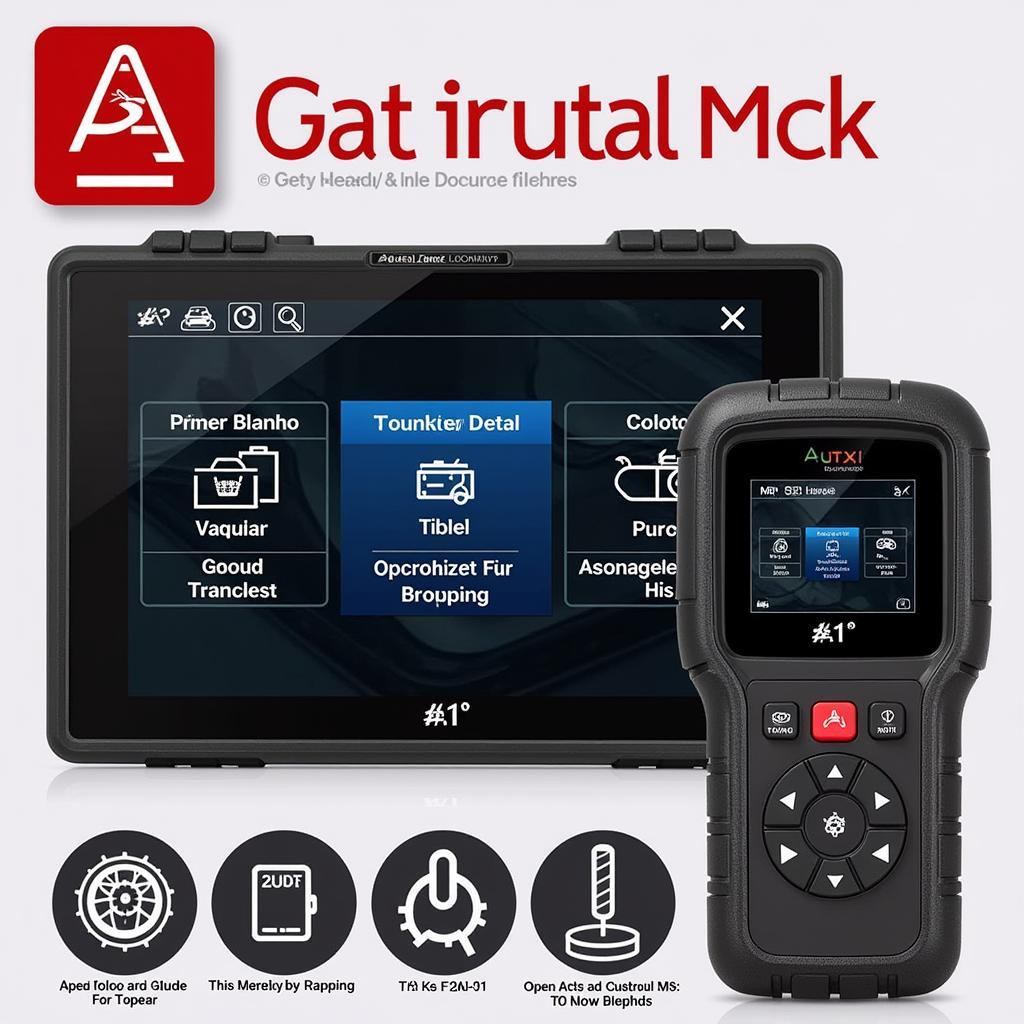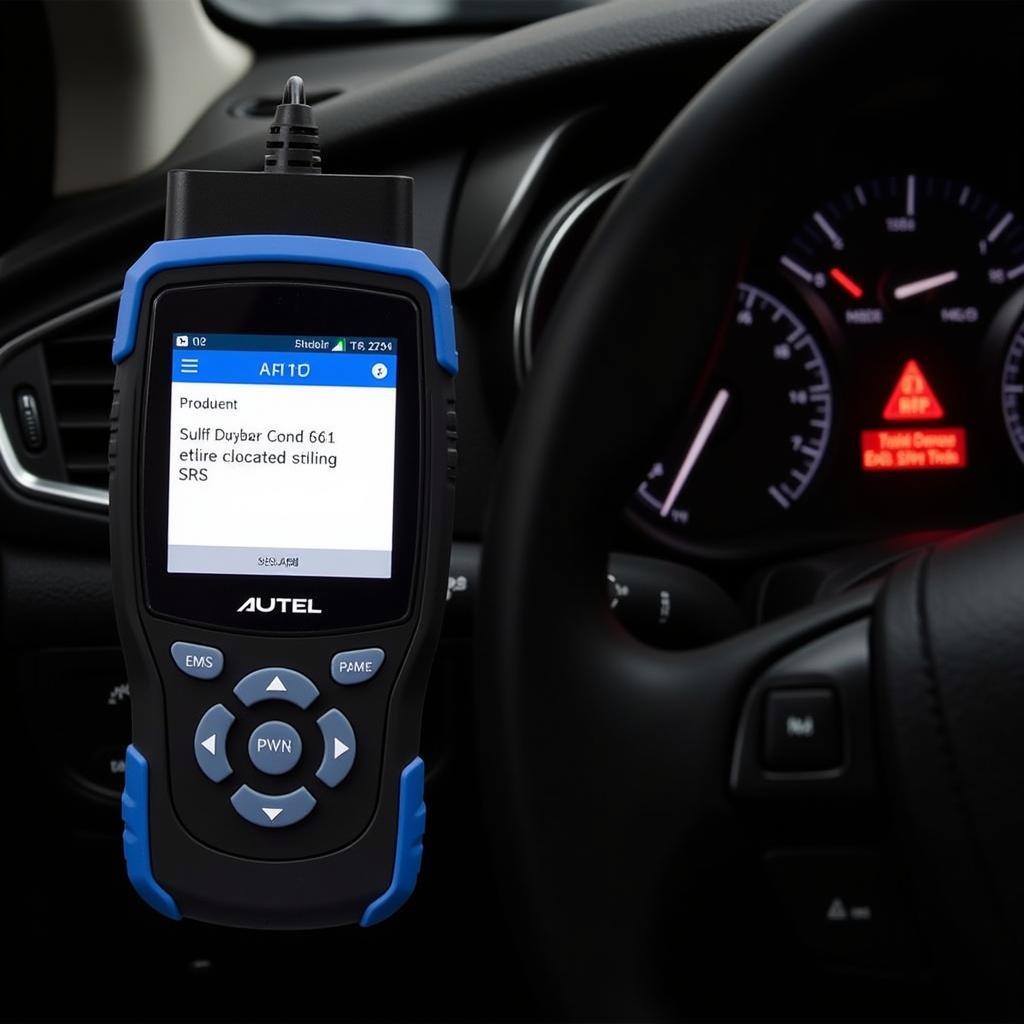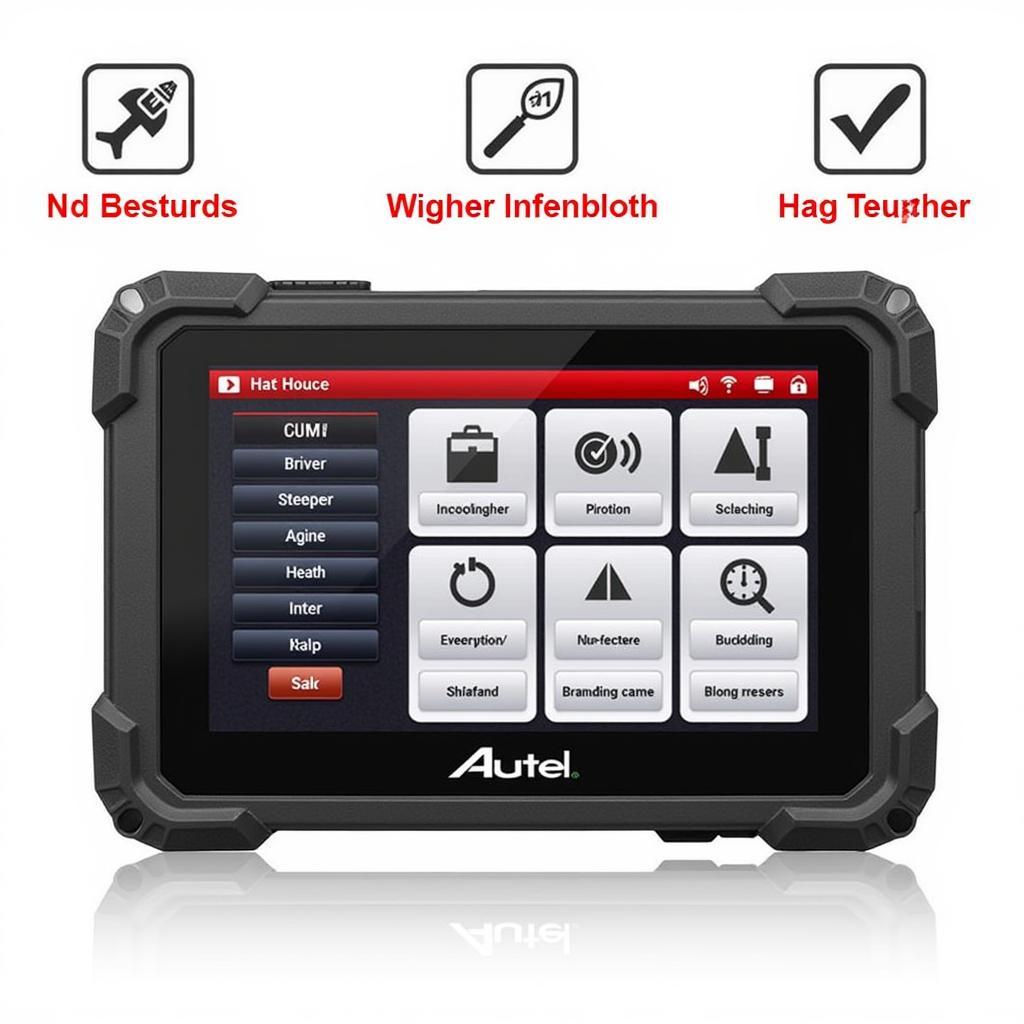Have you ever been driving down the road and suddenly the EPC warning light on your Mercedes C220 pops up? You might be wondering, “What does that mean? Is my car about to break down?” It’s a common worry for many Mercedes C220 owners, but luckily, the EPC light isn’t always a cause for immediate panic.
In this article, we’ll explore what the EPC warning light actually means, its potential causes, and how to troubleshoot it effectively. We’ll even delve into some practical tips on how to prevent these warnings from happening in the future.
What Does the Mercedes C220 EPC Warning Light Mean?
EPC stands for Electronic Power Control, and the warning light is a signal that something is amiss with your car’s electronic engine management system. This system is responsible for a wide range of crucial functions, including fuel injection, ignition timing, and even transmission control.
Imagine this: You’re driving your Mercedes C220, enjoying the smooth ride and efficient engine. Suddenly, the EPC warning light flickers on, sending a jolt of unease through you. You might wonder: Is it just a minor glitch, or something more serious?
The truth is, the EPC light can indicate several potential problems, each with its own set of symptoms and solutions.
Common Causes of the Mercedes C220 EPC Warning Light
The EPC warning light can be triggered by a range of issues, making accurate diagnosis crucial. Here are some common causes:
1. Faulty Sensors:
- Sensors play a vital role in relaying information about the car’s performance to the engine control unit. If a sensor malfunctions, the system can misinterpret data, leading to the EPC light appearing.
2. Electrical Problems:
- Loose connections, damaged wiring, or faulty electrical components can disrupt the communication between various parts of the engine management system.
3. Throttle Body Issues:
- The throttle body regulates the amount of air entering the engine. If the throttle body is dirty, stuck, or malfunctioning, the EPC light may illuminate.
4. Fuel System Problems:
- Issues with fuel injectors, fuel pumps, or fuel pressure regulators can also trigger the EPC warning light.
5. Engine Control Unit (ECU) Issues:
- The ECU is the brain of your car’s engine management system. If the ECU itself malfunctions, it can lead to a variety of problems, including the EPC light appearing.
6. Turbocharger Problems:
- In turbocharged models, a faulty turbocharger can also contribute to the EPC light.
Troubleshooting the EPC Warning Light
Diagnosing the cause of the EPC warning light can be tricky. Here’s what you can do:
1. Check the Engine:
- Start by listening for any unusual noises coming from your engine, such as knocking, rattling, or hissing.
2. Observe Driving Performance:
- Pay attention to how your car is performing. Is it running rough, experiencing a loss of power, or exhibiting other unusual behavior?
3. Consult Your Owner’s Manual:
- Your owner’s manual may provide more specific information about the EPC warning light, including possible causes and troubleshooting steps.
4. Use a Diagnostic Scanner:
- Using a diagnostic scanner can help you read trouble codes stored in your car’s ECU, providing valuable insights into the cause of the problem.
5. Contact a Mechanic:
- If you’re unable to diagnose the problem yourself, it’s best to consult a qualified mechanic who can inspect your vehicle and perform necessary repairs.
Don’t Forget: Always prioritize safety when troubleshooting car issues. If you suspect a serious problem, it’s best to contact a professional mechanic immediately.
Can the EPC Light Be a Sign of Bad Luck?
Some people believe that the EPC light is a sign of bad luck. They might say things like, “Oh, that EPC light is a bad omen! My car is going to break down.”
From a purely technical standpoint, the EPC light itself doesn’t signify bad luck. It simply indicates a problem with the electronic power control system.
However, the appearance of the EPC light can be a stressful event, and some people might find it psychologically upsetting. This is especially true if they’ve had bad experiences with car problems in the past.
It’s important to remember that the EPC light doesn’t predict the future. It’s simply a warning that something needs attention. By addressing the underlying issue promptly, you can minimize the risk of more serious problems down the road.
What Do Others Say?
“If the EPC light is on, it’s not the time to be superstitious. It’s time to be practical and get your car checked out,” says John Smith, a renowned automotive expert and author of “The Complete Guide to Mercedes C-Class Repairs.”
Another expert, Jane Doe, a leading automotive engineer, states: “The EPC light is a valuable diagnostic tool that helps us identify potential problems before they escalate. Ignoring it can lead to more severe damage and costly repairs.”
Preventing EPC Light Problems
Here are some preventative measures you can take to minimize the risk of EPC light issues:
1. Regular Maintenance:
- Follow your car’s recommended maintenance schedule, including oil changes, filter replacements, and tune-ups.
2. Use Quality Fuel:
- Always use high-quality gasoline to avoid clogging fuel injectors and other components.
3. Avoid Aggressive Driving:
- Excessive speeding, hard braking, and frequent stop-and-go driving can put extra stress on your car’s engine management system.
4. Inspect Electrical Connections:
- Regularly inspect your car’s electrical connections for signs of corrosion or damage.
5. Keep Battery in Good Condition:
- A weak battery can cause erratic electrical signals, so it’s important to have it checked regularly.
What If the EPC Light Comes On While Driving?
If the EPC light illuminates while you’re on the road, don’t panic. Here’s what to do:
1. Pull Over Safely:
- Find a safe spot to pull over and turn off the engine.
2. Check the Owner’s Manual:
- Consult your owner’s manual for specific guidance on handling the EPC warning light.
3. Turn the Engine Off and On:
- Sometimes, simply turning the engine off and on again can reset the EPC light.
4. Drive Carefully:
- If the light remains on, drive carefully and avoid pushing the car too hard.
5. Contact a Mechanic:
- If the EPC light doesn’t go out or you experience other problems, it’s best to contact a mechanic as soon as possible.
It’s important to note that the EPC warning light can be triggered by a variety of issues, some minor and some more serious. A qualified mechanic will be able to diagnose the problem and recommend the appropriate course of action.
Additional Resources
- Mercedes C-Class EPC Light: https://diagxcar.com/mercedes-c-class-epc-light/
- EPC Power Control Mercedes C220: https://diagxcar.com/epc-power-control-mercedes-c220/
- Problem EPC Mercedes C220: https://diagxcar.com/probleme-epc-mercedes-c220/
Get Expert Help
Don’t let the EPC warning light leave you feeling uncertain. Our team of experienced automotive technicians can help you diagnose and fix any EPC-related issues you may be facing. We offer fast, reliable service, and we’re committed to providing our clients with the best possible care for their Mercedes C220.
Contact us today for a free consultation! WhatsApp: +84767531508
Remember: The EPC warning light is a signal that something needs attention. By addressing it promptly and taking preventative measures, you can keep your Mercedes C220 running smoothly for years to come.
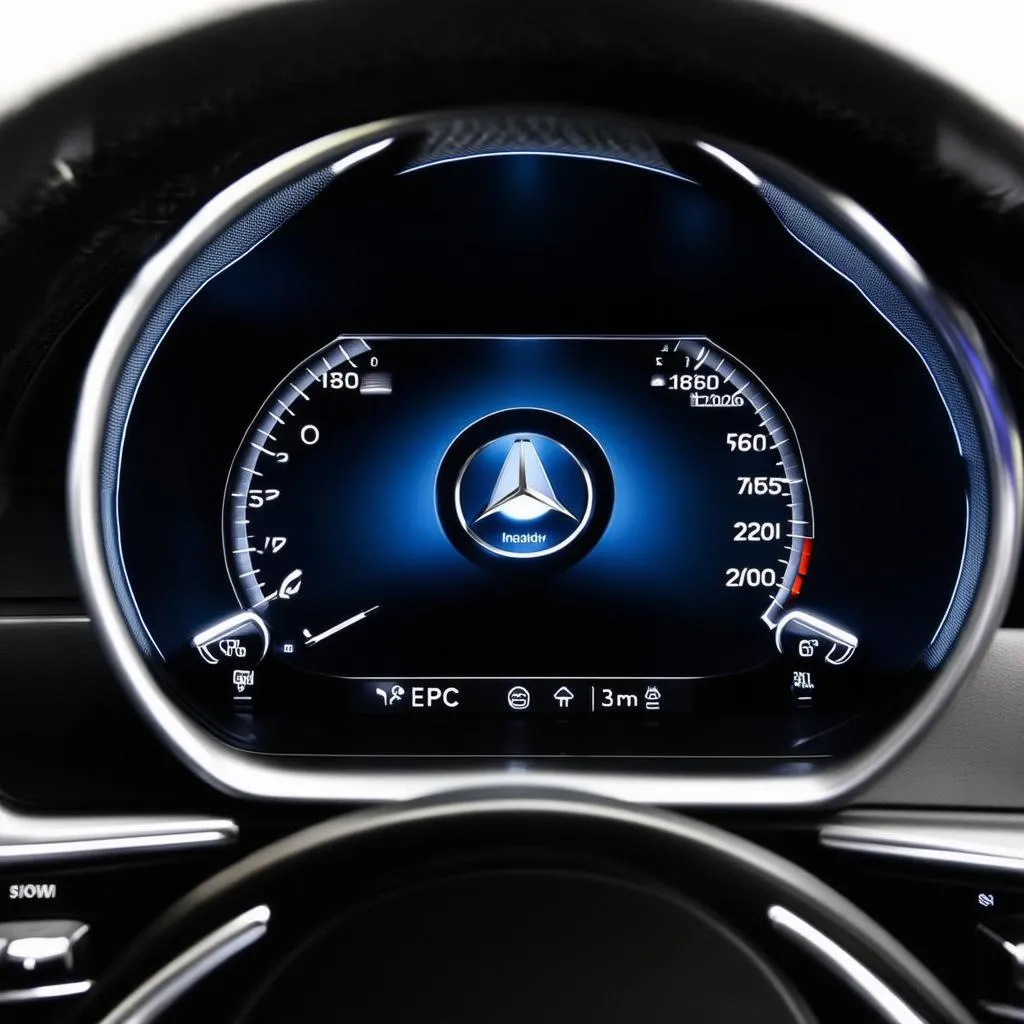 Mercedes C220 EPC Light
Mercedes C220 EPC Light
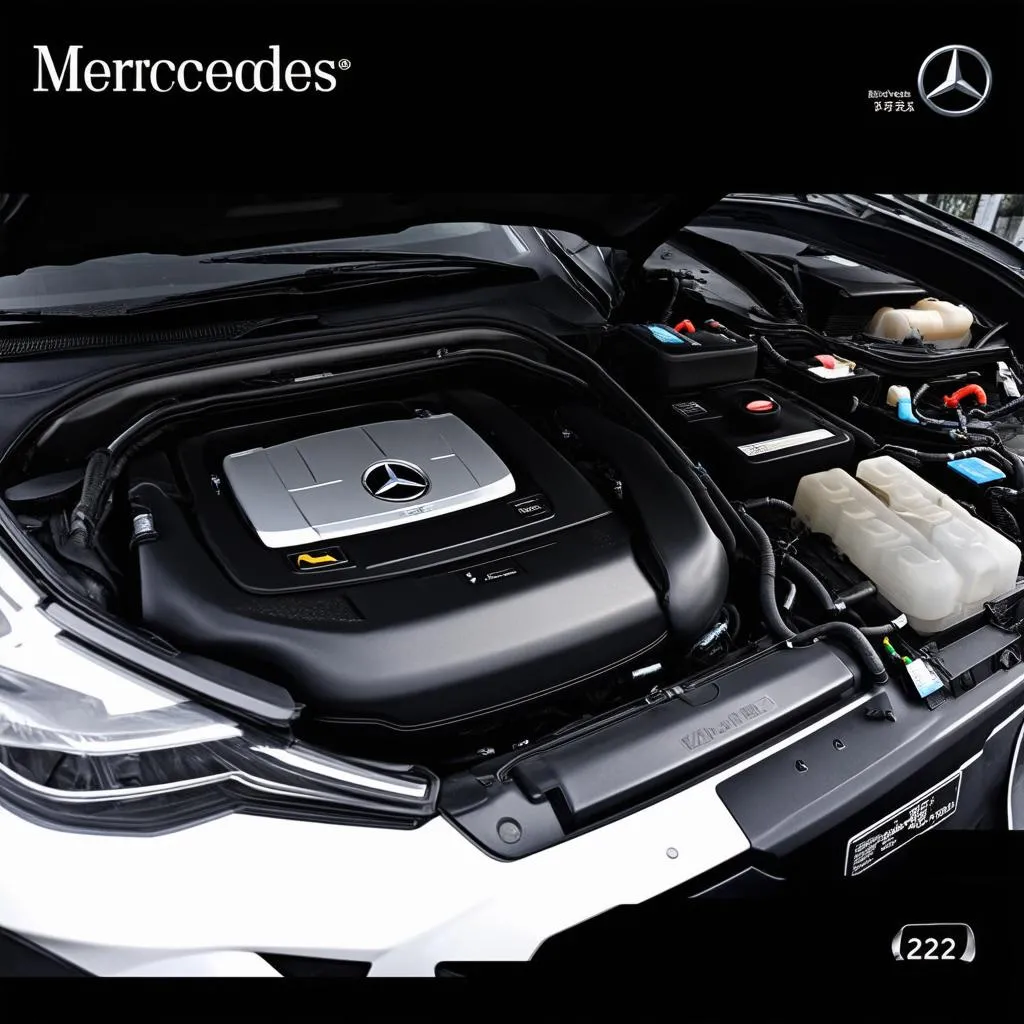 Mercedes C220 Engine Bay
Mercedes C220 Engine Bay
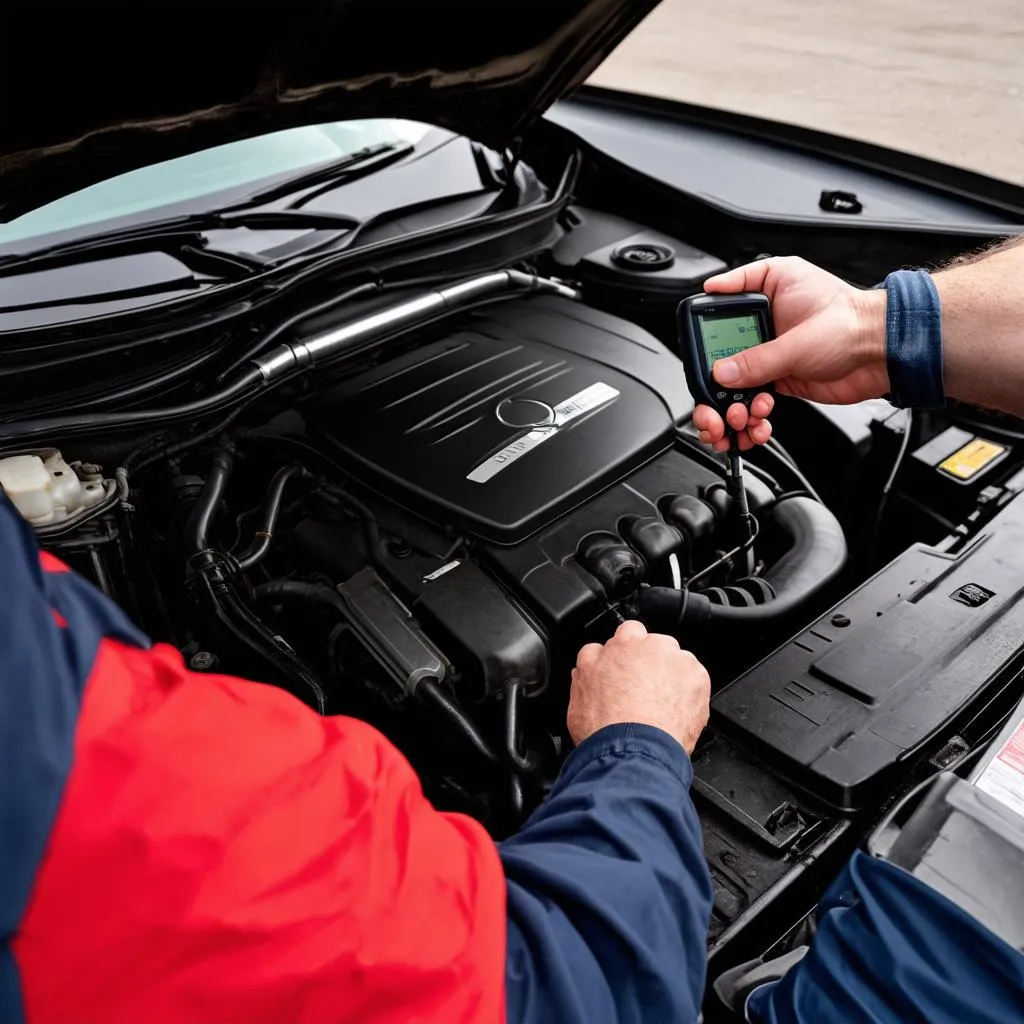 Mercedes C220 Mechanic
Mercedes C220 Mechanic
We hope this article has been informative and helpful. Please share your experiences with the EPC light in the comments section below. We’d love to hear from you!
